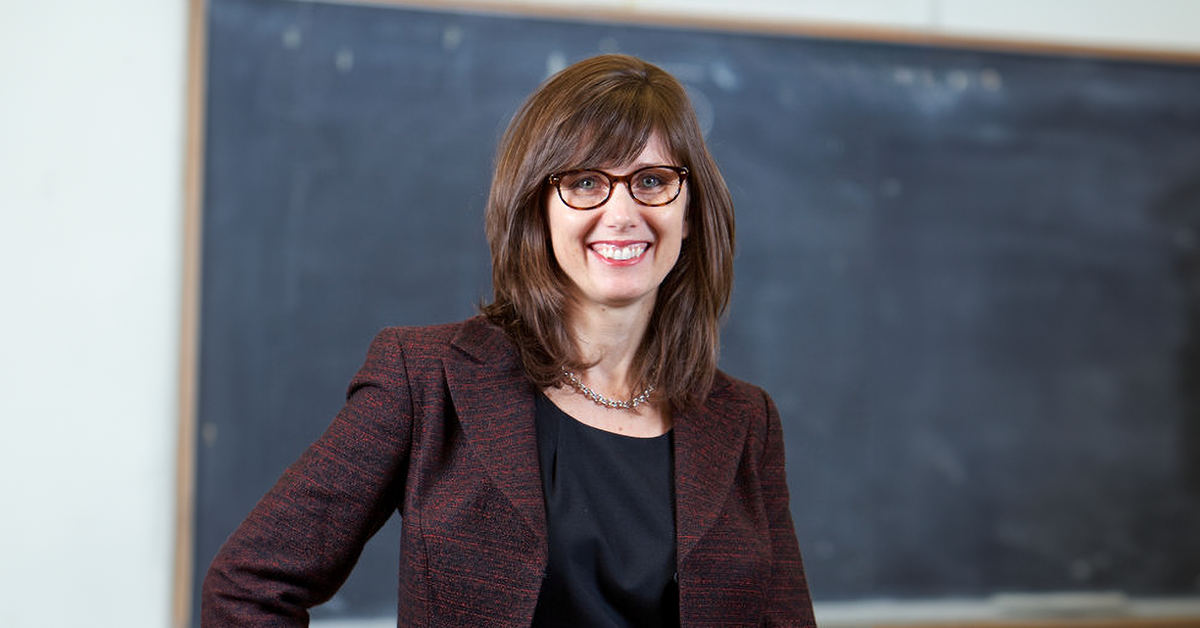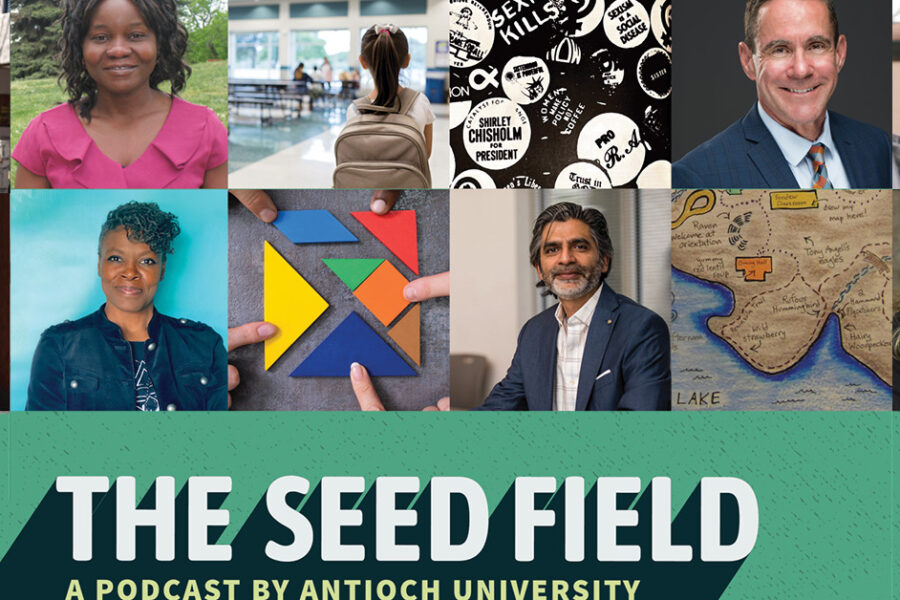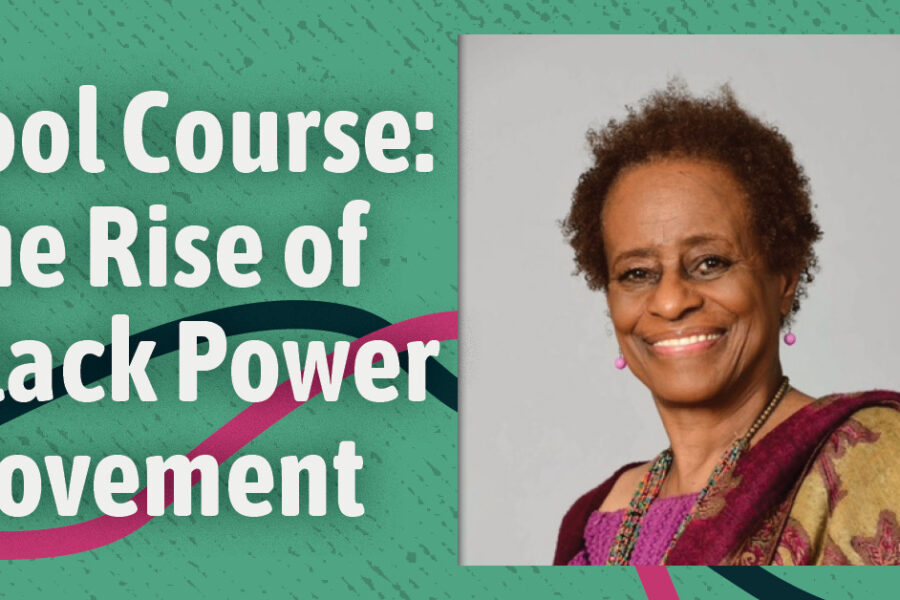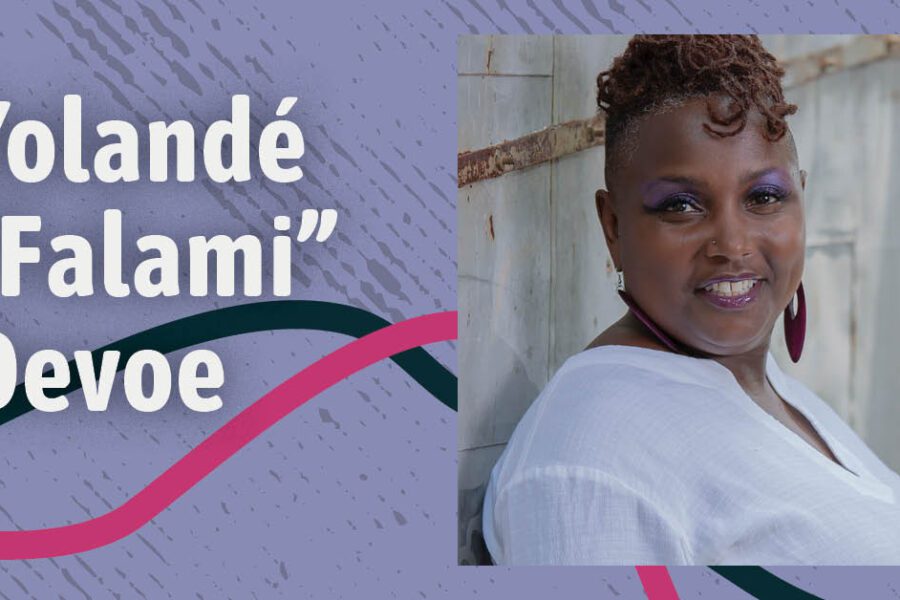“Students come to Antioch to be justice educators,” says Heather Cheney, a core faculty member and chair of the MA in Teaching program at Antioch Seattle. “I mean, it’s part of the identity of the whole university.”
This reputation is exactly what drew Cheney—who believes education can improve lives and make society more just—to work at Antioch in the first place. And at Antioch Cheney is able to bring a justice lens to her specific focus as a researcher and educator: promoting literacy.
Writing instruction is a topic that she sees too often lacking in teacher education programs. This is a major oversight, because helping students develop their language skills has larger ramifications in helping students feel empowered and in control over the languages they use to communicate. After all, says Cheney, “Really good literacy instruction is at the core of social justice education.”
Her journey to finding this mission, in this institution, has been a winding one. It even included a moment, just before she began teaching at Antioch, when she almost left the profession entirely. Today, though, Cheney has found her calling amid a community of other teacher educators and teachers-in-training who are committed to confronting the role of schools in perpetuating systems of racism, white supremacy, and other discrimination—and to dismantling those systems.
The Path to Teacher Training
Cheney’s passion for education as a path to social justice traces its roots back to her own education. She pursued her undergraduate degree in comparative literature from the University of California, Santa Cruz. Initially, she thought that for a career she wanted to be a professor of literature. “I was taking classes like Native American novels and Chicano literature,” she explains. And “those courses really challenged dominant narratives about history and society.” These questions seemed burningly urgent, and lit a fire in her to fight for social justice and dismantle white supremacy. But the question was, “What does that mean for my life path? What am I going to do? Now that I’m emerging in these understandings?”
Eventually she enrolled in a teacher preparation program at Santa Clara University, a Jesuit university in northern California. The program was deeply focused on social justice—a key concern of the Jesuit order. And, as Cheney says, “They really walk the talk.” In the program she read things that challenged her in different ways and forced deep reflection. This was in the late ‘90s, a time when social justice was much of a focus across higher education. But the Santa Clara University program asked her “to think about my white privilege, to think about how schools treat minoritized communities… everything from discipline policies and homework policies and all the pedagogy in between.” This developed the practice of constantly asking how these decisions were “affecting kids who are not white, middle class people like me.”
This encounter with a transformative teacher preparation experience was transformative. “It set me up to ask the questions and bring values to teaching that really guided me as a teacher,” she explains. She took those values out into the world and began working as a classroom teacher.
But the experience also gave her a deeper reflective questioning that eventually led her back into academia. As Cheney says, “It set me up to ask the kinds of questions—hard questions and deep questions—that drove me back to graduate school.” In 2004 she enrolled in a PhD program in Curriculum and Teacher Education at Stanford University, where she focused on literacy education.
From the start at Stanford, she worked in teacher education. She found that she loved helping prepare and share her passion for issues of social justice with teacher candidates who would carry these ideas into classrooms across the state and country. When she graduated in 2010, she was hired by the University of Washington as a professor in their literacy education programs.
After eight years teaching there, Cheney decided to try a more policy-oriented job as the Program Supervisor in Literacy at the Washington Office of Superintendent of Public Instruction. Shortly after she took the position, her longtime friend and colleague Julia Daniels called her up and told her that there was a job opening at Antioch that she thought would be perfect for her. At first, Cheney was reluctant to apply. “I hadn’t totally figured out yet that I was not a policy person,”she explains. But Daniels kept encouraging her, explaining that it combined many of her professional passions: literacy, social justice, and K-8 education.
She did her research, and learned more about Antioch and its longstanding emphasis on social justice. Eventually, she decided to apply. She got the job, and since 2019 she has been chair of Antioch Seattle’s MA in Teaching.
Defining Literacy and Educating For It
In this role, Cheney has been able to bring a strong emphasis on literacy education to the program she directs. And she believes this is such an important piece of preparing future educators. Literacy education helps students “build the confidence, love, and skills to help them use writing as a tool in their lives,” she explains. As students develop confidence in their skills as people empowered in using language, they can perform writing tasks for themselves personally but also out in their communities to make social impact and connect with other people. In this decade, Cheney points out, writing can take many forms: more traditional ones like op-eds and letters to officials but also internet-based communication like social media posts, video scripts, and memes. And these new media give writers much easier access to audiences and feedback than older forms.
Unfortunately, says Cheney, “School-based writing tends not to do any of that.” Instead, curricula, as much as they teach writing, emphasize five-paragraph essays, informational reports, and other exercises that are disconnected both from applications in the wider world and from student’s lived experiences.
Cheney believes that we need to expand our definitions of literacy in a broader sense, too. “It is reading, but it is also writing,” she explains. “And more broadly than writing, it is composing. When students are thinking about what they’re going to say, for example, even just talking with a partner before sharing with the whole class, that’s composition.” She goes as far as to say that “the way that you use visuals, sound, gesture, language, both as you’re composing and as you’re taking these in from your environment, all of that is literacy.” (Cheney discusses this in detail on a recent episode of Antioch’s Seed Field Podcast.)
This expanded definition of literacy is important, because it doesn’t plot students on a continuum from illiteracy to mastery (the famous “reads at a fifth grade level”) but instead illuminates the strengths that all students bring to the classroom. Approaching literacy by emphasizing the assets students already have rather than their deficits allows teachers to encourage students to grow from a place of strength.
Using Literacy to Promote Justice
This decision to frame literacy not as something we’re lacking but as something we all already have much competency in is of a piece with Cheney’s desire to bring a social justice perspective to education.
The School of Education has a longstanding focus on social justice. Over the last few years, the School has focused on racial justice to examine and transform the way the School is run. This informs the way that the department is run, from program policy and admissions to faculty hiring decisions and also to gatekeeping mechanisms around who gets to finish and proceed in the program. “You know, we’re really thinking about how racism, how white supremacy shows up in all those areas,” says Cheney. “And that’s been ongoing work.”
A key part of her work is helping teachers in training put their values of antiracism and social justice into their methodology and practice in the literacy classroom. The question, as Cheney puts it, is “What does it mean to be an antiracist teacher, on the ground?” In grade school, literacy education can take over two hours of every school day—so teaching it in a thoughtful and antiracist way is crucial. “What they learn from me is going to be connected to what they’re going to be doing for most of their day,” explains Cheney. “So it’s a huge responsibility that I take really seriously.”
Perhaps the most challenging part of literacy instruction is that language is deeply connected to emotions and a sense of the self. Helping students to feel confident in their writing often means making a space where everyone knows that vulnerability will not be punished. “How do you build community and trust that allows kids to show up with their whole selves?” asks Cheney. This is vital if students are going to “write in ways that are meaningful to them, about things that they’re passionate about, and have it be comfortable enough for [the teacher] to also push their writing skills forward.”
Cheney helps teachers-in-training develop these skills in part by asking that they engage in vulnerable writing exercises themselves. In these simulated lessons, the teacher candidates take the role of students, making their own “Heart Maps” in one favorite lesson. For many of the teacher candidates, being asked to do a creative writing project of their own is itself stressful and even scary. So Hebard gets to model the way that a classroom teacher can create a space in which it’s safe to be vulnerable.
Ultimately, Cheney is working to bring high-quality, socially aware literacy education to more classrooms in Washington State and across the country. And she is using literacy to ask questions of deep importance to our society. “How do we build the confidence, love and skills to help students use writing as a tool in their lives? For themselves personally, to make a social impact, to connect with people—all the purposes that we might use writing for.”
———
This article was edited in January 2024 after Heather changed her last name. In previous versions of the article she was referred to as Heather Hebard.





